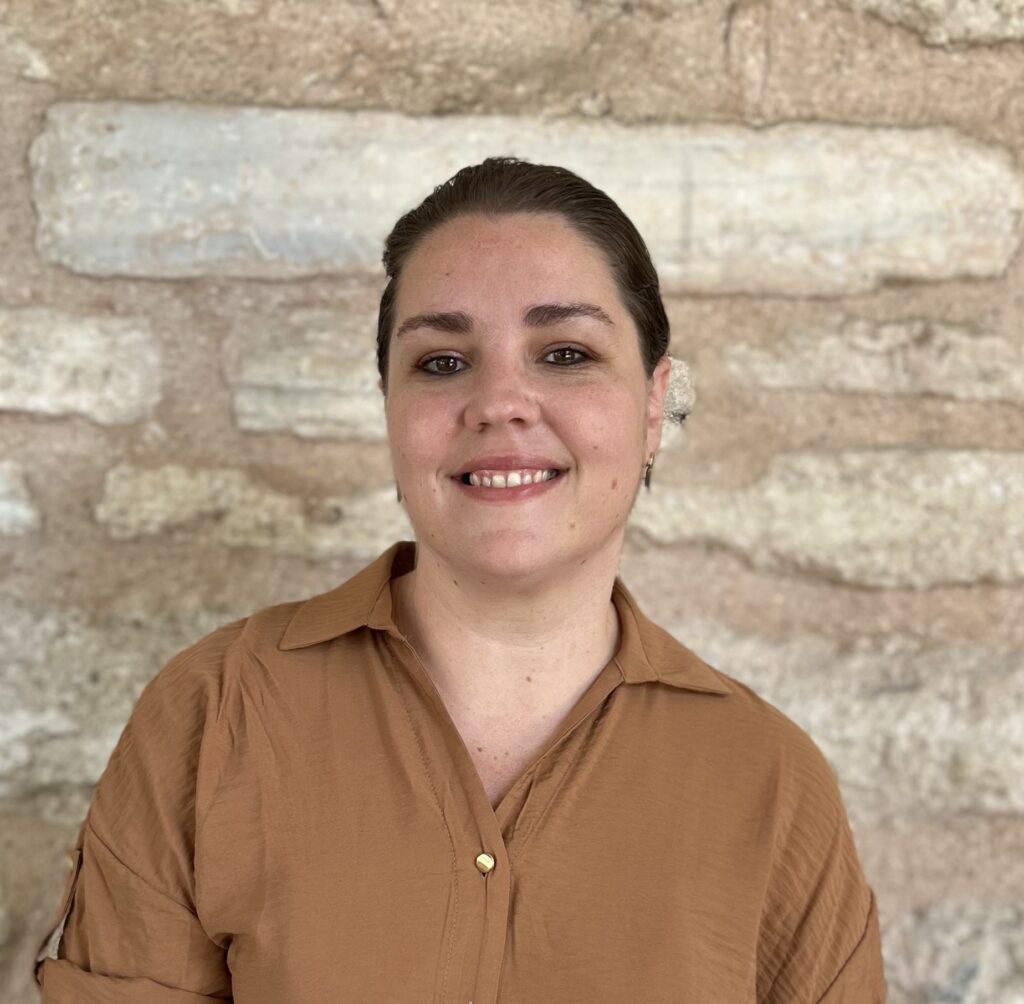Laura Gonzales

Laura Gonzales, Ph.D., Associate Professor of Digital Writing and Cultural Rhetorics at the University of Florida
Through this grant project, Dr. Gonzales will expand her research on borderland technology design, collaborating with organizations in the US and Mexico to develop methodologies for bilingual digital research. Dr. Gonzales has established partnerships with various organizations, including the Rural Women’s Health Project in Gainesville, Florida, Weavetales in Jacksonville, Florida, Refugee Congress, a national US-based organization, the Red de Interprete’s Interculturales in Oaxaca de Juarez, Mexico, and the Centro Profesional Indígena de Asesoría, Defensa, y Traducción, also in Oaxaca de Juarez, Mexico. These organizations will help the consortium be more directly engaged with Indigenous languages and cultures that are critical to borderland scholarship. Dr. Gonzales will bring a focus on language and community engagement to the Transborder DH Center-Consortium.
Laura’s research, teaching, and community work is situated at the intersections of language diversity, community engagement, and technology design. Her first monograph, Sites of Translation: What Multilinguals Can Teach Us About Digital Writing and Rhetoric (University of Michigan Press, 2018) is both a print book and a webtext that illustrates the intricate rhetorical work that multilingual communicators engage in as they make information accessible for and with their communities. Her second monograph, Designing Multilingual Experiences in Technical Communication, explores how borderland residents in El Paso, Texas and Ciudad Juárez, Chihuahua, México, blend variants of Spanishes and Englishes to localize digital health information. In addition to her monographs, Laura has published approximately 30 peer-reviewed articles, webtexts, and book chapters that reflect her commitment to culturally-sustaining and collaborative interdisciplinary research and digital making. Laura’s work has been featured in leading journals such as Technical Communication Quarterly, College Composition and Communication, The Journal of Usability Studies, Connexions International Professional Communication Journal, Technical Communication, and Kairos: A Journal of Rhetoric, Technology, and Pedagogy, among others. Most recently, Laura is making more purposeful connections between language accessibility and disability studies in the context of digital media. For example, her recent article in the December 2018 issue of Communication Design Quarterly(opens in new tab), “Captioning for Intersectional Accessibility: An Ethnographic Case Study of Multilingual Technical Content Creation,” threads conversations about interdependent research methodologies through a disability studies perspective (e.g., Price & Kerchbaum, 2016) with Kimberlé Crenshaw’s (1989) framework of intersectionality to suggest that the designers and developers of digital media should more intricately engage with cultural rhetorics theories and methodologies to create intersectionally-accessible content that will reflect the diverse communicative strengths of contemporary audiences.